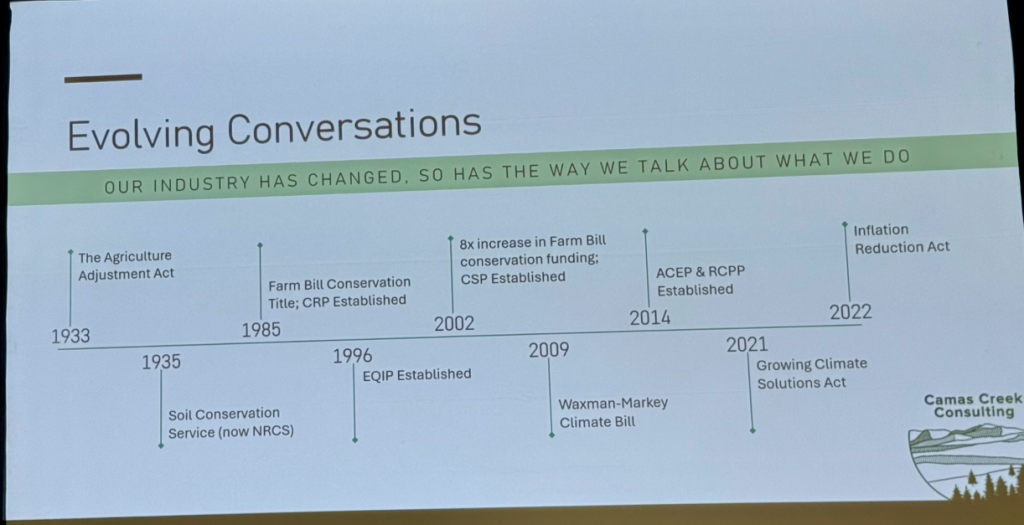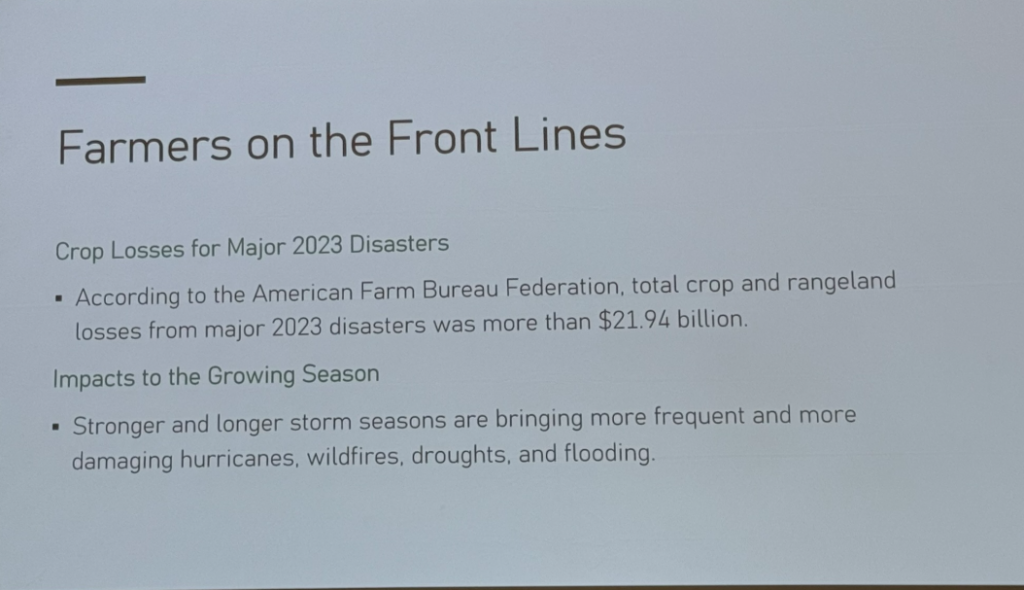
At the National Farmers Union convention, Jon Doggett, former CEO of the National Corn Growers, discussed the evolving landscape of climate-smart agriculture, highlighting both progress and missed opportunities.

“When we started these conversations 30 years ago or more, you know, we didn’t even know what questions we wanted to ask,” Doggett explained, reflecting on the initial challenges. He noted a significant shift in farmer perception over time. “Back in the 90s, farmers by a very low percent thought that there was climate change at a rate much lower than the general population. That’s flipped. Farmers and ranchers now believe there’s climate change at a much higher percentage than the rest of America.”

Doggett emphasized the importance of genuine partnerships between farmers and policymakers. “Farmers and what they want is actual partnerships,” he stated. However, he expressed concern about recent policy uncertainties. ““Climate is a dirty word for this administration, and they push back pretty hard on it. We need some answers pretty quickly because we are getting to the season when people need to put seed in the ground. I think there are a lot of questions that need to be answered before that happens, and I’m hopeful, but not optimistic.”

For farmers seeking to participate in climate-smart agriculture programs, Doggett offered practical advice. “My best advice is go down to the NRCS office, sit down with that person, and say, ‘I want to do something here. What’s available? How does it work?'” He also stressed the value of peer-to-peer learning. “Find out who else in your county is involved in these programs, go talk to that person, and see what worked, what didn’t work.”

Additionally, he called producers everywhere to advocate for themselves through the ballots by knowing what they want and who represents them. “There is no ag vote anymore,” Doggett insisted, remembering a $250 million Senate race in Montana in which neither candidate appealed to the agricultural sector through advertising. “But we still have an ag voice, and we are going to have to start using that voice more and more.”

Regarding conservation and agricultural policy, Doggett outlined key principles. “It needs to be voluntary, incentive-based, predictable, and a commitment made is a commitment that must be met.”

















